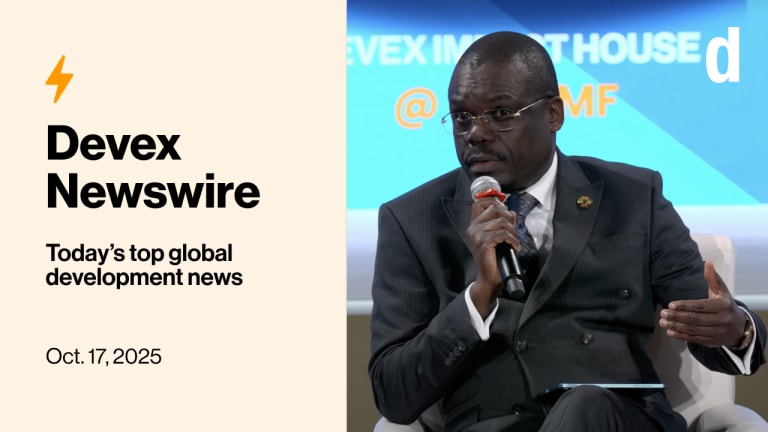
GiveWell, the charity assessment organization, says it has decided to roll over about $110 million raised this year into 2022 due to a purported lack of funding opportunities that would be more cost-effective than giving cash directly. This has prompted backlash from groups that worry the move sends the wrong message to donors looking to make the most impact in 2021.
GiveWell measures cost-effectiveness by comparing charities and evaluating how much of an effect they can have for each dollar given. Historically, GiveWell has sought funding opportunities that would be eight or more times more effective per dollar than cash transfers.
In 2021, the organization lowered this bar to include efficacy that is five to eight times higher than cash transfers, but it still could not find enough opportunities meeting that standard, it said. As a result, GiveWell has decided to hold $110 million out of at least $500 million expected to be raised this year, according to Ben Bateman, the head of growth at GiveWell.
“GiveWell is thinking too small, undervaluing what can be achieved today ... and not accounting for the perspectives of people living in poverty.”
— Joe Huston, managing director, GiveDirectly“We search for the charities that save or improve lives the most per dollar. We’re not just looking for great opportunities to share with our donors, we’re looking for the best opportunities that meet our criteria,” Bateman wrote in a Nov. 22 blog post explaining the decision to roll over the 2021 funding.
GiveWell, which was founded by former hedge fund analysts in 2007, is responsible for distributing money from its Maximum Impact Fund and from Open Philanthropy, a research and grant-making organization that started as a partnership between GiveWell and the Good Ventures foundation.
Both Good Ventures and Open Philanthropy are backed by billionaire couple Dustin Moskovitz and Cari Tuna. The organizations are influential among donors who identify as “effective altruists,” seeking to do the most good that they can with every dollar spent.
Yet GiveWell’s decision this year to withhold some of the $300 million committed by Open Philanthropy has been met with skepticism and wariness from those who oppose holding back philanthropic dollars that could help address immediate global needs. The move is also feeding into broader discussions about transparency and accountability between donors and nonprofit organizations, as well as debates over giving money now versus holding on to it until higher-impact opportunities arise in the future.
Among GiveWell’s most vocal critics is nonprofit cash transfer organization GiveDirectly. Bateman said GiveWell considered granting GiveDirectly the money “that we’re unable to spend at our current bar” before eventually deciding to keep it for 2022.
In a blog post following the announcement, GiveDirectly Managing Director Joe Huston wrote that “we think GiveWell is thinking too small, undervaluing what can be achieved today, underestimating the costs of waiting, overestimating how much better they’ll allocate funds in the future, and not accounting for the perspectives of people living in poverty. In short, we think the world has an unprecedented opportunity to eliminate most of extreme poverty in our lifetimes, and we worry GiveWell’s decision hinders that effort.”
GiveDirectly, which also counts Good Ventures among its funders, provides cash transfers to impoverished people around the world. It is one of the nine charities that GiveWell continues to recommend to donors. GiveWell has said that it plans to reevaluate GiveDirectly’s cost-effectiveness next year.
Huston said GiveDirectly has not received funding from GiveWell since 2015 and did not expect to do so in 2021 either. Still, he indicated it was important to weigh in on the decision.
“It’s helpful to recognize that GiveWell isn’t just another donor or a grant-maker, that they have a kind of special role and responsibility here,” Huston told Devex. “They’ve established themselves as the go-to charity recommender or evaluator. And so I think what they say about the available opportunities is really important.”
Huston drew a connection between GiveWell’s assessment and a recent Twitter spat involving billionaire Elon Musk and World Food Programme head David Beasley after Musk called for the United Nations agency to publicly detail how it would spend the more than $6 billion that Beasley said was needed to address world hunger. That public back-and-forth raised questions about accountability and transparency between donors and nonprofit organizations in how money is spent.
In that context, it is crucial for the “leading voice” in effective philanthropy to point out the many opportunities for giving — including those that do not meet GiveWell’s high-impact bar — and the significant level of need that currently exists, Huston said. The “most important thing is that effective giving could be so much bigger than this” and that the $500 million GiveWell is working with this year is still just 0.1% of U.S. charitable giving, he said.
“I think what we wanted out of this conversation was to broaden the scope and increase the ambitions for what effective giving could do,” Huston said.
While GiveWell makes good recommendations, donors should also seek out additional opportunities for charitable giving, he said.
Giving Green co-founder Dan Stein similarly encouraged donors to look beyond GiveWell’s recommendations for high-impact organizations when trying to identify how they can contribute now and in the future. Giving Green also recommends nonprofits but is not a grant-making organization.
“GiveWell has a certain approach to finding good organizations, and that has been immensely successful. And I think they’ve done such a great job at it,” Stein said. “But there are limitations to their approach.”
GiveWell relies on data that proves certain interventions have direct effects on people, Stein said, but donors can choose other types of interventions with less certainty.
The organization maintains that its decision to withhold some funds this year was done in accordance with its ethos that more lives can be saved through cost-effectiveness. Still, its announcement is being wrapped into broader conversations about transparency and accountability within philanthropy.
GiveWell faced a choice between funding organizations that would fall below this year’s already lowered threshold for cost-effectiveness or giving the money to GiveDirectly, said Stephanie Stojanovic, director of development at GiveWell, during an interview with Devex. Ultimately, the organization decided it would be best to recommend that Open Philanthropy keep $110 million of the $300 million that it had committed to GiveWell this year in its own fund, she said.
If GiveWell continues to find itself in a similar position in the future, she added, it might consider developing its own asset management to handle rollover funds. GiveWell is aiming to distribute $1 billion annually by 2025.
When asked to respond to those criticizing GiveWell for holding on to the money, Stojanovic said that quickly getting funding out the door is not as important for GiveWell as making sure that this is done in a way that yields the greatest impact.
“We’re really looking for things that will be the most cost-effective, and often that means we’re funding things into the future,” Stojanovic said.
Brian Mittendorf, a professor of nonprofit accounting at The Ohio State University, said GiveWell’s announcement reflects the reality that scaling operations rapidly and sustainably is not simple. According to GiveWell, the organization has grown more quickly than expected and is hiring to meet challenges resulting from a surge in donor commitments over the past decade.
“We have seen far too many examples where an organization gets a windfall of resources and they either commit funds immediately — only to discover that it wasn’t a wise choice or [was] an unsustainable one — or they opt to quietly retain funds instead,” Mittendorf said. “GiveWell deserves credit for being both thoughtful and transparent about the decisions they made with the increase in funds they have received.”
Mittendorf also said that many other organizations with growing revenues have faced “similar trade-offs” but that GiveWell is unique for its transparency around the decision-making process. That could set a precedent for greater openness within the sector, he said.








